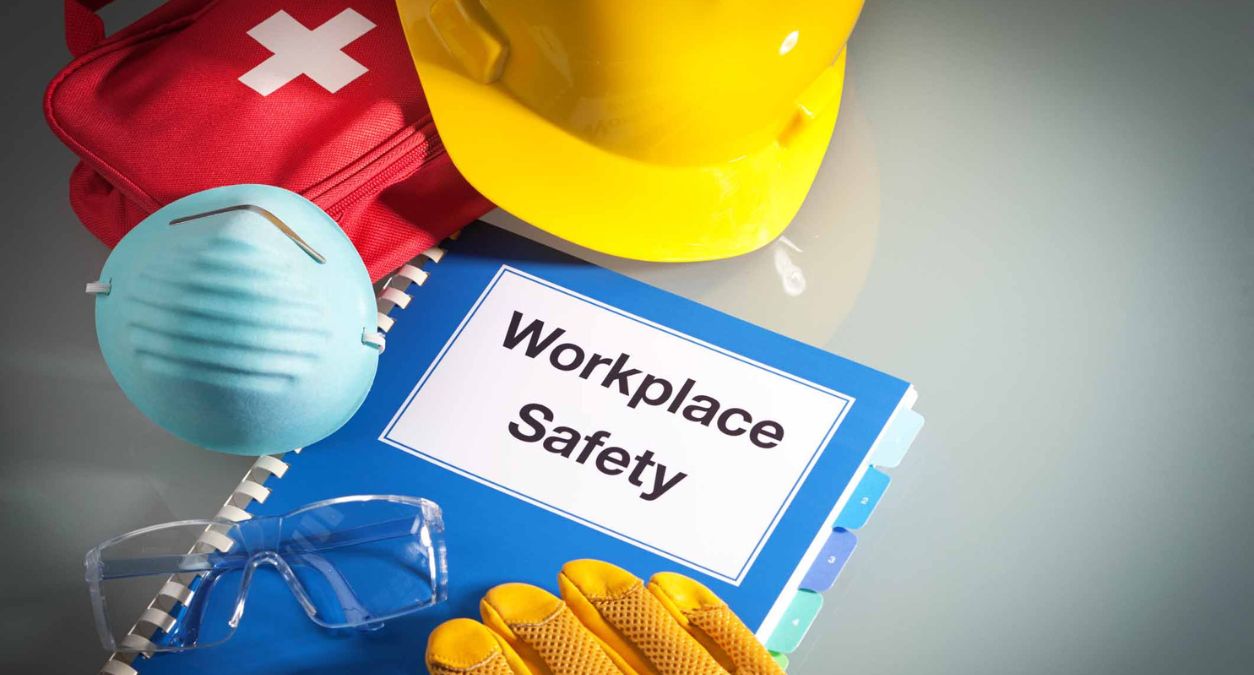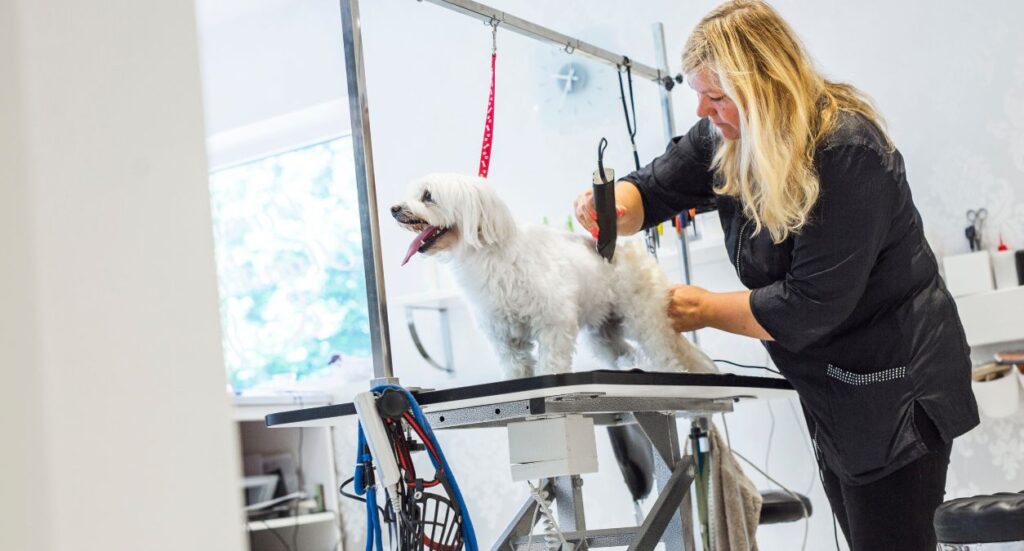Contributors
My main focus is managing the blog and product content for the Protectivity website ensuring everything aligns wi...
As the number of small businesses grows every year, the commitment to health and safety is not just a legal necessity but a fundamental obligation to customers and teams. As regulations evolve and workplaces transform, ensuring a safe and secure environment becomes a paramount concern for business owners.
From the formulation of comprehensive policies to understanding certification requirements and the role of the Health and Safety Executive (HSE), we explore the vital components that contribute to a culture of safety and wellbeing in your workplace.
In this guide, we outline the essential steps, practical insights and guidance that small businesses in the UK need to know, to navigate the intricacies of health and safety compliance.
How to practise health and safety as a small business
Ensuring health and safety in a small business is crucial for the wellbeing of employees and compliance with regulations. Businesses manage health and safety through a combination of policies, risk assessments, employee training, regular inspections, emergency preparedness, compliance with regulations, and ongoing communication with employees.
Read more detail about the various elements of health and safety advice for small businesses.

Develop a health and safety policy
You’ll need a health and safety policy for your small business, outlining your commitment, procedures, and responsibilities around health and safety in the workplace. It is a legal requirement for small businesses to have a health and safety policy. The Health and Safety at Work Act 1974 places a duty on employers to ensure, as far as reasonably practicable, the health, safety, and welfare of their employees at work.
So what exactly is it? A health and safety policy is a key document that outlines how a business intends to meet this duty. The size and complexity of the policy may vary based on the individual business. However, having a written policy is a legal obligation for anyone with five or more employees, to demonstrate that you will meet health and safety standards. If you have fewer employees than this, it isn’t a legal requirement to write it down but it may be useful for you to refer to.
You should be able to find free health and safety policy templates for small businesses in the UK if you need guidance, within many online resources. However, the policy needs to cover these areas:
- Part 1: Statement of intent – this is where you’ll detail your own commitment to health and safety, with information on your general policy. It will need to be signed and reviewed regularly by the employer or most senior person in a company.
- Part 2: Responsibilities for health and safety – this part needs to include names, positions and duties of the business employees who are responsible for adhering to health and safety guidelines.
- Part 3: Arrangements for health and safety – this is where you can outline the plans you’ve set in place to achieve the health and safety objectives in your policy, such as risk assessments and training.
Risk assessment
Small business owners must systematically identify and evaluate potential hazards within the workplace. This includes scrutinising physical, chemical, biological, ergonomic, and psychosocial factors. The process also extends to implementing effective mitigation measures, regularly reviewing and updating assessments to align with evolving workplace conditions.
Proactive risk management not only creates a safer working environment but also serves as a foundation for compliance with health and safety standards, safeguarding the wellbeing of employees and the overall integrity of the business.
Training
Just like any other business, small businesses with employees will benefit from delivering comprehensive training for effective health and safety. Educate teams on safety protocols, emergency procedures, and proper equipment use. Regularly update training so that it’s relevant to evolving risks and regulations. A well-trained workforce ensures awareness, and compliance, and contributes to a secure working environment.
Emergency preparations
Establish robust emergency preparedness in small businesses for effective health and safety. Develop clear evacuation plans, conduct drills, and ensure accessibility to first aid resources. Communicate emergency procedures to employees, for the best chance of a swift and coordinated response. Prioritising preparedness safeguards lives and minimises risks during unforeseen events.
Personal protective equipment (PPE)
Personal protective equipment (PPE) is vital for health and safety in many small businesses. It plays a crucial role in injury prevention and employee protection. Assess workplace risks to understand the type you’ll need, before providing appropriate PPE. This could include gloves, masks, and helmets. Regularly train employees on PPE protocols and proper usage, for a secure environment and compliance with safety standards.
Regular inspections
Regular inspections are vital for small businesses practising health and safety. Conduct systematic checks to identify and mitigate potential hazards. Inspect equipment, facilities, and work processes to make sure they’re all compliant, creating a safer workplace. Proactive inspections contribute to risk reduction, regulatory adherence, and the overall welfare of employees.
Health and safety committee
If you have a team, you might like to create a committee to involve employees in the decision-making process regarding health and safety. Create a health and safety for small business checklist and share it with everyone, or develop it together. This ensures that the whole team are informed on how to support the business in maintaining the required standards.
Record keeping
Effective record-keeping is integral to practising health and safety in a small business. Maintain detailed records of risk assessments, safety training, and regular inspections. Document incidents, near-misses, and corrective actions taken. This information not only ensures compliance with regulations but also aids in identifying trends and areas for improvement.
Accurate record-keeping demonstrates your commitment to health and safety protocols, facilitates the tracking of employee training and equipment maintenance, and is invaluable in the event of audits or inspections. Regularly review and update records to reflect changes in the workplace, for a proactive approach to maintaining a safe and secure working environment.
Enlist professional support
Health and safety consultants for small businesses can offer you invaluable support. You may wish to invest in professional help from someone who specialises in guiding organisations through regulatory compliance, risk assessments, and policy development. They’ll tailor their expertise to the unique needs of small enterprises, so that they can give you practical solutions to enhance workplace safety and adhere to legal standards.
From conducting thorough safety audits to offering employee training, these consultants play a pivotal role in helping you create a secure working environment. By collaborating with them, you can navigate complex regulations efficiently, mitigate risks, and put employees and customers first. It can be a worthwhile business expense for the benefits to your business reputation, as well as the time and stress it saves you in running your company safely.

Does my business need a health and safety certificate?
In the UK, small businesses typically do not require a specific health and safety certificate. As discussed above, the focus is on the need for small businesses to assess their operations, identify potential risks, and implement measures to ensure compliance.
While there isn’t a universal certificate, certain industries or activities might necessitate specific certifications. Consultation with regulatory authorities and professional advice can clarify whether any industry-specific certifications or registrations are mandatory for your company.
Do I need to register my business with HSE?
In the UK, not all businesses are required to register with the Health and Safety Executive (HSE). Registration is generally not mandatory for most low-risk businesses. However, you are still obligated to ensure health and safety compliance. If your business involves higher-risk activities or falls within certain industries (e.g., construction, manufacturing, or hazardous materials), you may need to register with the HSE.
It’s recommended to use the HSE’s online tool or contact them directly to determine your specific obligations. Keep in mind that even if registration is not mandatory, compliance with health and safety regulations outlined by the HSE is essential for all businesses in the UK.
Get small business insurance with Protectivity
When it comes to mitigating financial risks and protecting your business against unexpected events, having the right insurance is crucial. It gives you coverage for property damage, liability claims, legal expenses, and employee-related risks. Running a small business can be unpredictable enough, so you can enjoy more peace of mind if you protect yourself against accidents or lawsuits, which can threaten the financial stability of a small business. This ensures that your company can recover and continue operations in the face of adversity, for a resilience that instils confidence among any stakeholders and safeguards your investment.
Protectivity’s small business insurance offers you a safety net, with up to £5 million worth of public liability and up to £10 million worth of employers’ liability to choose from. You can also opt for a products liability insurance extension, or optional commercial legal protection.
Read more and get an online quote tailored to your needs. If you need any support, our team are on hand to answer your questions.
Get Small Business Insurance from Protectivity
*Disclaimer – This blog has been created as general information and should not be taken as advice. Make sure you have the correct level of insurance for your requirements and always review policy documentation. Information is factually accurate at the time of publishing but may have become out of date.
Last updated by

















